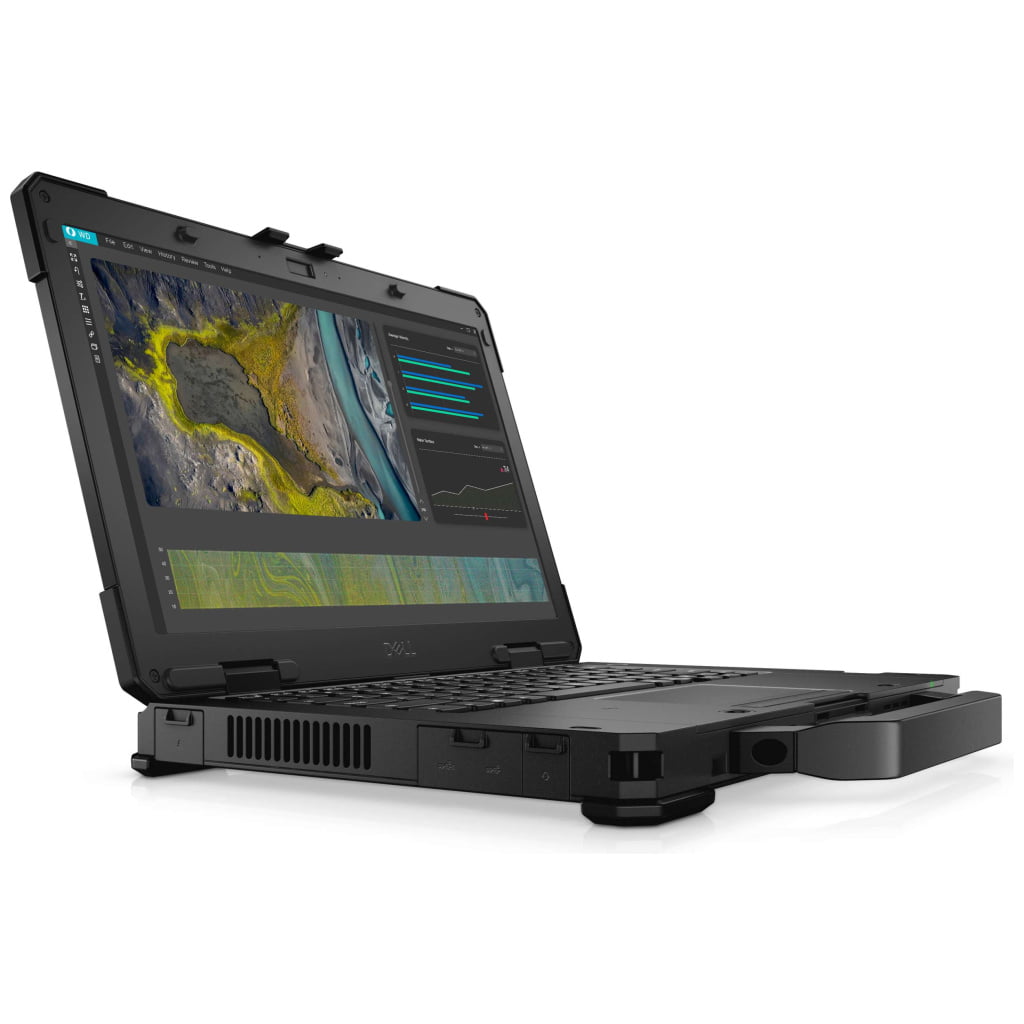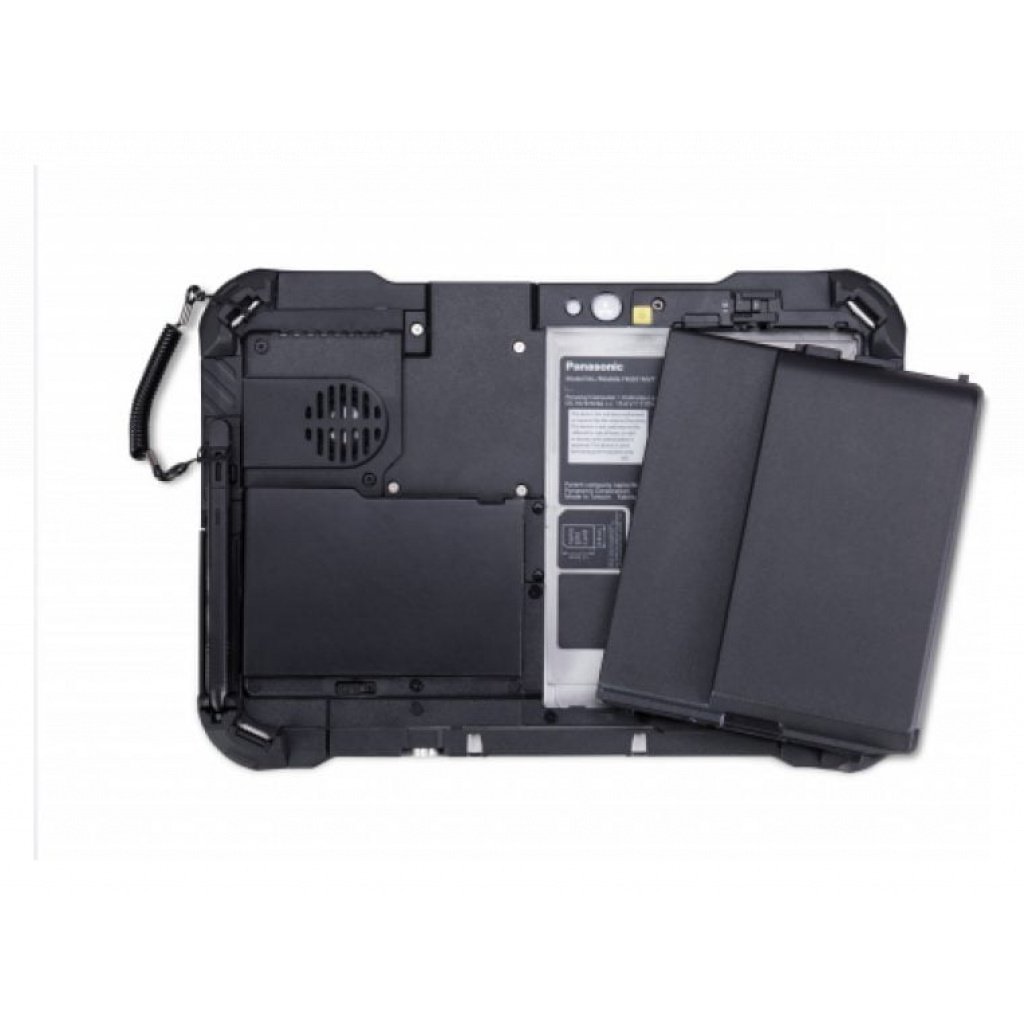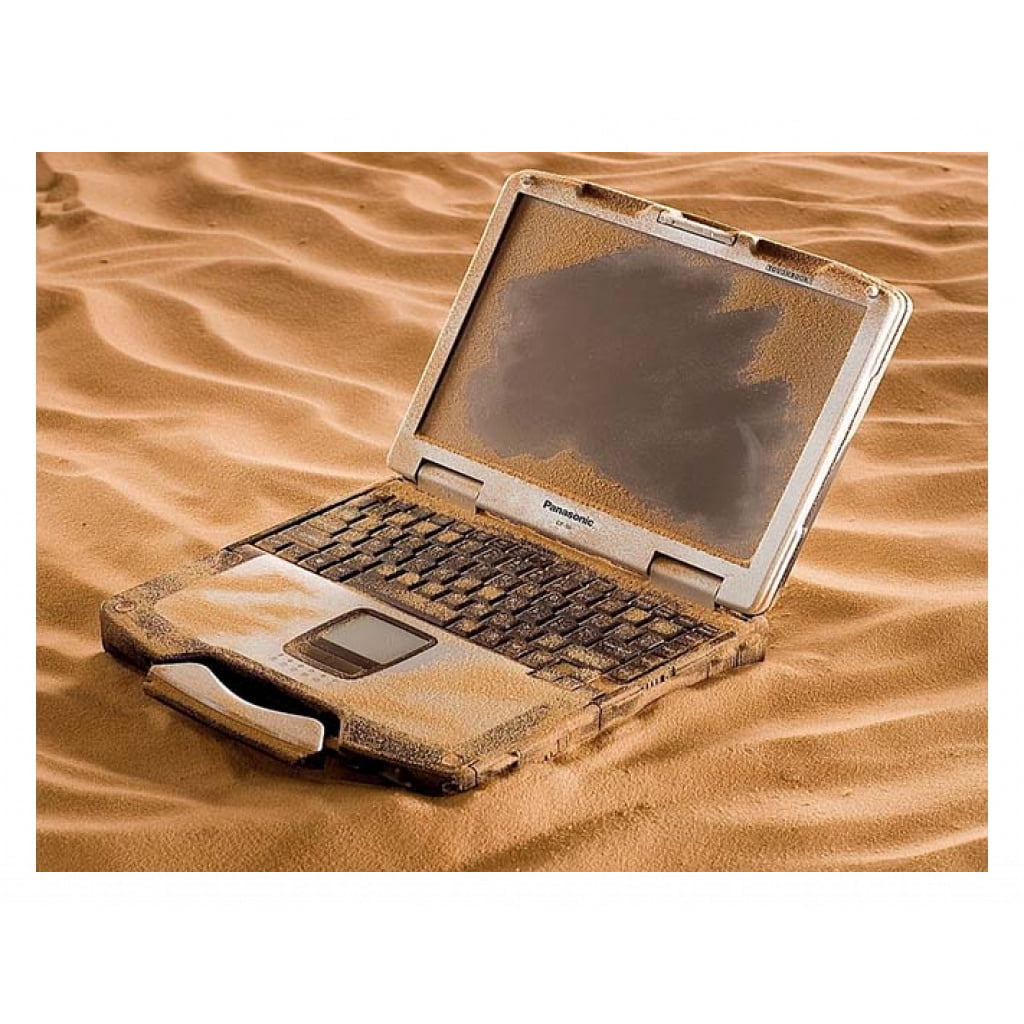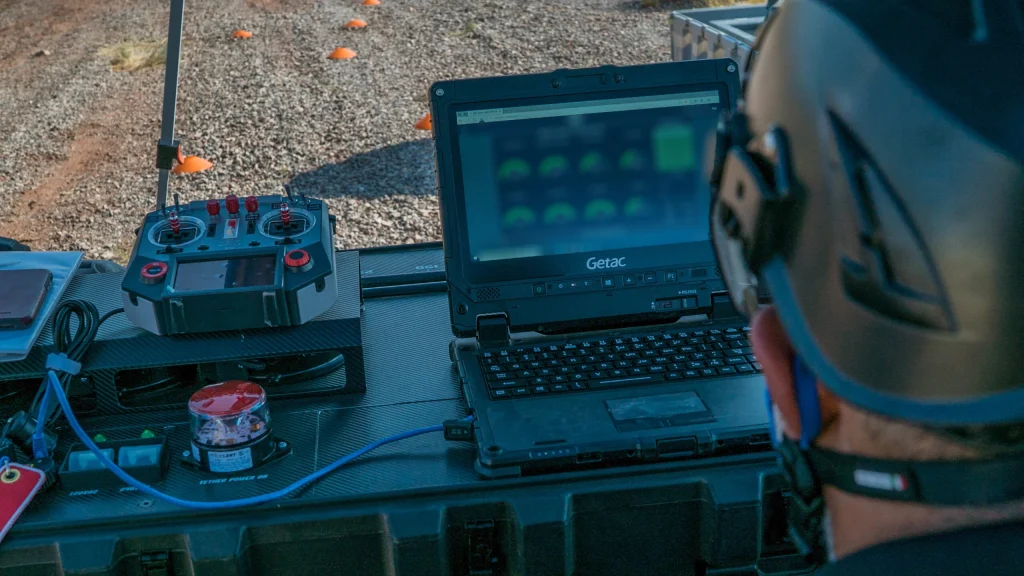Why settle for mediocrity when your profession demands the exceptional? In the relentless pursuit of durability and performance, field laptops emerge as the unsung heroes for professionals braving the elements. These rugged marvels are not just about surviving drops or enduring water splashes; they’re about providing unwavering reliability and peak performance in environments where traditional laptops would falter. With advancements that cater specifically to those on the move, field laptops ensure that your work doesn’t just continue but thrives, regardless of where you are. This post dives into what makes these devices indispensable for anyone who works beyond the confines of a comfortable office, highlighting their unmatched resilience and how they redefine productivity on the go.
Key Takeaways
- Rugged laptops are indispensable for fieldwork, offering unparalleled durability and reliability that standard laptops can’t match. This makes them a wise investment for professionals who frequently work in challenging environments.
- Enhanced security features of rugged laptops safeguard sensitive data against cyber threats, an essential consideration for industries handling confidential information.
- Their weather and environmental resistance ensure that rugged laptops perform optimally in conditions that would compromise the functionality of regular laptops, highlighting their suitability for outdoor and harsh working conditions.
- Mobility and connectivity capabilities of rugged laptops support seamless work on the go, proving crucial for field workers who require constant access to data and communication networks.
- Despite a higher initial cost, the long-term cost-effectiveness of rugged laptops is significant. Their durability reduces the need for frequent replacements and repairs, offering better value over time.
- When choosing the right rugged laptop, consider specific use cases in various industries and select a model that aligns with your professional needs and environmental challenges to maximise productivity and efficiency.

Introduction to field laptops
Rugged Definition
Field laptops, known for their rugged design, cater to demanding outdoor and challenging environments. They are engineered to withstand harsh conditions, including dust, water, extreme temperatures, and drops. These devices ensure reliability and performance when it matters most.
Field laptops serve professionals across various sectors. They are indispensable in construction sites, military operations, and remote research projects. Their primary purpose is to provide a durable computing solution that standard laptops cannot offer.
Evolution Journey
The transition from traditional laptops to modern rugged models marks a significant evolution in portable computing. Initially, field laptops were bulky, heavy devices with limited capabilities. However, advancements in technology have led to the development of lighter, more powerful rugged laptops.
These modern versions come equipped with high-performance processors, enhanced connectivity options, and improved battery life. They maintain their robustness while offering the same level of functionality expected from conventional laptops.
Industry Demand
The demand for rugged laptops has surged in various industries due to their durability and reliability. In construction, they withstand the rigours of the site while providing essential data management and communication tools. The military relies on them for operations in extreme conditions where failure is not an option.
Research teams in remote locations benefit from their long battery life and ability to operate in severe weather conditions. This increasing need underscores the importance of rugged laptops in critical operations.
Enhanced Productivity
Field laptops, designed for harsh conditions, significantly boost productivity. Their rugged build allows users to work in extreme environments without the fear of damage. This reliability ensures that tasks are completed on time.
They come with bright screens visible in direct sunlight and long-lasting batteries. These features eliminate common outdoor work challenges.
Operational Efficiency
Investing in rugged laptops leads to long-term cost savings. Traditional laptops may fail in challenging conditions, leading to data loss and expensive repairs or replacements.
Field laptops, however, are built to withstand drops, dust, water, and extreme temperatures. This durability reduces the need for frequent replacements, enhancing operational efficiency.
Key Features
When selecting a field laptop, several features stand out as essential for optimal performance:
- Durability: Look for military-grade protection against impacts and environmental hazards.
- Battery Life: Opt for models with extended battery life to ensure uninterrupted work sessions.
- Visibility: High-brightness screens are crucial for outdoor visibility.
- Performance: Ensure the laptop has sufficient processing power and memory for your specific applications.
- Connectivity: Consider options with robust wireless connectivity features for remote access and data transfer.
Benefits of Rugged Laptops in Fieldwork
Impact Resistance
Rugged laptops are built to withstand physical impacts and drops. Their robust casings protect the internal components from damage. This resilience ensures that data remains intact, even after accidental falls.
They often undergo rigorous testing to meet military standards for durability. This testing includes exposure to extreme temperatures, pressure, and moisture. As a result, field workers can rely on these devices in harsh conditions without fear of data loss.
Extended Battery Life
One key advantage of rugged laptops is their extended battery life. They are designed for long hours of use away from power sources. This feature is crucial for uninterrupted fieldwork where charging options are limited.
Manufacturers optimize these laptops for energy efficiency. They incorporate power-saving technologies and high-capacity batteries. Users benefit from prolonged operation times, enhancing productivity in remote locations.

Enhanced Usability
Rugged laptops offer features tailored for ease of use in challenging environments. Sunlight-readable displays allow workers to view screens clearly under bright conditions. Glove-friendly touchscreens enable operation without removing protective handwear.
These enhancements address common issues faced in outdoor or industrial settings. Workers can interact with their devices more effectively, reducing downtime and frustration.
Durability and Reliability
Military Materials
Field laptops, designed for extreme conditions, utilise military-grade materials. These materials ensure resilience against drops, shocks, and vibrations.
Manufacturers opt for magnesium alloy for the chassis, known for its strength-to-weight ratio. They also incorporate rubberised edges to absorb impacts. Such construction makes these laptops virtually indestructible in demanding environments.
Testing Standards
Rigorous testing standards like MIL-STD-810G validate a rugged laptop’s reliability. This involves exposure to extreme temperatures, humidity levels, and altitudes.
Tests also cover resistance to dust and water ingress, ensuring functionality in all weather conditions. The compliance with these standards guarantees performance under stress.
Failure Rates
Compared to standard laptops, rugged models boast significantly lower failure rates. This results in fewer disruptions in critical field operations.
The robust build minimises the need for repairs or replacements. It translates into substantial savings over time, both in terms of money and operational efficiency.
Enhanced Security Features
Biometric Scanners
Field laptops now come equipped with biometric scanners. These devices ensure that only authorised users gain access. Fingerprints and facial recognition are common methods. They provide a quick yet secure way to unlock the device.
Biometric authentication greatly reduces the risk of unauthorised access. It’s a direct response to the increasing need for data protection in various outdoor environments.
TPM Chips
Trusted Platform Module (TPM) chips add another layer of security. They work by storing encryption keys directly on the device. This makes it significantly harder for hackers to breach.
TPM chips safeguard sensitive information at a hardware level. They are crucial for professionals handling confidential data in the field. Their integration demonstrates a commitment to advanced security protocols.
Hardware Encryption
Hardware-level encryption is essential for protecting data on field laptops. It encrypts all data stored on the device, making it unreadable without the correct decryption key.
This type of encryption is particularly effective against physical theft. Even if a laptop is stolen, its data remains inaccessible to unauthorized users. This feature is vital for professionals who often work in unpredictable environments.
Secure Boot Processes
Secure boot processes prevent malicious software from loading when the laptop starts up. This ensures that only trusted software runs on the device.
These processes check for digital signatures of all booting software. If an anomaly is detected, the system halts, safeguarding against potential threats. This feature is crucial for maintaining operational integrity in the field.
Compliance with Regulations
Field laptops with these security features comply with industry-specific regulations and standards. For sectors like healthcare and finance, this compliance is non-negotiable.
Regulatory compliance not only protects sensitive information but also builds trust with clients and stakeholders. It demonstrates a dedication to maintaining high standards of data security and privacy.
Weather and Environmental Resistance
Extreme Temperatures
Field laptops must withstand extreme temperatures, both high and low. They operate efficiently in conditions that would halt a standard laptop. This resilience is crucial for professionals working in harsh environments, from scorching deserts to freezing arctic regions.
These devices maintain functionality through innovative cooling systems and insulated designs. They ensure data integrity and system performance regardless of the thermometer’s readings. Users can rely on these rugged laptops to perform tasks without overheating or freezing up.

Water Resistance
Protection against water ingress is non-negotiable for field laptops. They come equipped with seals and gaskets that keep moisture at bay, ensuring they remain operational even when exposed to rain or accidental spills. This feature extends their usability across various outdoor conditions, from humid jungles to wet maritime settings.
Their design often exceeds industry standards for water resistance, such as IP ratings, which measure a device’s ability to withstand liquids. These laptops provide peace of mind for users who frequently work in unpredictable weather, safeguarding critical data from water damage.
Dust and Sand Ingress
Similarly, rugged laptops are fortified against dust and sand ingress. Their tightly sealed casings prevent particles from entering the system, a common issue in desert environments or construction sites. This protection ensures that key components, like the motherboard and storage drives, remain free from contaminants that could lead to hardware failure.
The durability of these devices under such conditions underscores their value for fieldwork where traditional computers would succumb to the elements. It also minimizes maintenance needs and extends the lifespan of the equipment.
Screen Visibility
In bright outdoor settings, screen visibility becomes paramount. Field laptops often feature anti-glare and anti-reflective screens to enhance readability under direct sunlight. This advancement allows users to work effectively without seeking shade or struggling with screen visibility issues.
These screens not only improve productivity but also reduce eye strain associated with prolonged use in brightly lit environments. The importance of clear display technology cannot be overstated for field professionals who depend on screen-based information throughout their workday.
Mobility and Connectivity
Lightweight Design
Field laptops boast a lightweight yet sturdy design, crucial for professionals who traverse various environments. They combine durability with portability, ensuring that carrying them across different field sites does not become a cumbersome task.
Their construction uses materials that provide resistance to weather and environmental challenges, as discussed previously, while also keeping the weight minimal. This balance is vital for field workers who often move from site to site and need their equipment to be as mobile as they are.
Connectivity Options
Staying connected is paramount for field workers who rely on real-time data exchange with central systems. Field laptops offer a comprehensive range of connectivity options including Wi-Fi, 4G LTE, and GPS.
Wi-Fi ensures seamless connection to local networks, while 4G LTE provides broadband internet access in areas without Wi-Fi, crucial for sending reports or accessing cloud-based applications. GPS functionality is indispensable for tasks requiring geolocation services, enabling precise mapping and tracking activities in the field.
Multiple I/O Ports
The inclusion of multiple Input/Output (I/O) ports enhances the versatility of field laptops. These ports allow for the connection of various external devices and equipment essential in many field operations.
Whether it’s connecting external drives for extra storage or linking specialized equipment for data collection, having a variety of ports available means workers can adapt their setup as needed without fuss. This flexibility significantly boosts productivity and efficiency in the field.
Cost-Effectiveness Over Time
Total Ownership
The total cost of ownership (TCO) for field laptops encompasses more than the initial purchase price. It includes ongoing maintenance costs, software updates, and the potential financial impact of downtime due to repairs or replacements. Field laptops, particularly rugged models designed for harsh conditions, often present a higher upfront cost compared to standard laptops. However, their durability significantly reduces the need for frequent repairs or replacements.
Rugged laptops are engineered to withstand environmental challenges such as dust, water, and extreme temperatures. This resilience translates into lower maintenance needs and fewer interruptions in field operations. For businesses relying on mobility and connectivity, as discussed in the previous section, minimizing downtime is crucial. The savings from reduced operational disruptions often offset the initial investment in rugged laptops over time.
Lifespan Comparison
Rugged laptops boast an extended lifespan in field conditions when compared to their standard counterparts. While a typical laptop may last 2-4 years under normal office use, rugged laptops can continue operating effectively for up to 5-7 years in demanding environments. Their design prioritizes longevity and reliability, incorporating features like shock-resistant hard drives and reinforced casings.
This extended lifespan not only enhances productivity but also contributes to cost-effectiveness by spreading the initial investment over more years of service. Organizations that deploy rugged laptops in the field can anticipate longer periods between procurement cycles, further reducing total expenditure.
Resale and Recycling
At the end of their service life, rugged laptops also offer advantages in terms of resale value and recycling possibilities. Due to their durable construction and longer operational life, these devices often retain higher resale values than standard laptops. Businesses can recoup part of their initial investment by selling used rugged laptops or donating them for educational purposes.
Furthermore, the robust build of rugged laptops makes them more suitable for recycling efforts. Components such as metal frames and specialized plastics are easier to repurpose or recycle responsibly. This aspect not only contributes to a business’s sustainability goals but also adds an element of cost recovery at the end of the product’s lifecycle.
Use Cases in Various Industries
Construction Sites
Rugged laptops have become indispensable tools on construction sites. They withstand dust, drops, and vibrations that are common in this environment.
Builders rely on them for tasks like project management and architectural rendering. A case study shows how a major construction firm reduced project delays by 20% using rugged laptops for real-time data access.
Military Operations
In military operations, durability and security are paramount. Rugged laptops meet these needs with their reinforced frames and secure software environments.
They support strategic planning and communication in extreme conditions. Testimonials from defence personnel highlight the reliability of rugged laptops in areas with severe weather conditions.

Emergency Services
For emergency services, response time can save lives. Rugged laptops offer fast and reliable access to critical information in crises.
Firefighters use them to access building plans during an operation. Paramedics rely on rugged laptops for patient records en route to hospitals. These devices ensure that life-saving decisions are informed and timely.
Scientific Research
Rugged laptops facilitate scientific research in remote and harsh environments. They endure low temperatures, moisture, and dust, making them ideal for fieldwork.
Researchers studying climate change in the Arctic report that rugged laptops have been crucial for data collection and analysis outside the lab. Their robustness allows uninterrupted research work, even in challenging conditions.
Choosing the Right Rugged Laptop
Environmental Conditions
When selecting a rugged laptop, consider the environmental conditions it will face. These devices are designed to withstand harsh environments, including extreme temperatures, moisture, and dust.
They often come with IP (Ingress Protection) ratings that indicate their level of resistance to these elements. A higher IP rating signifies better protection. For instance, an IP65-rated laptop is dust-tight and can handle low-pressure water jets from any direction.
Processing Power
The processing power of a rugged laptop is crucial for field operations. It must be capable of running complex applications without lagging or crashing.
Look for models with powerful processors and ample RAM. This ensures they can handle data-intensive tasks with ease. Opting for SSDs over HDDs also improves speed and reliability.
Battery Life
Long battery life is essential for field laptops. They should last through a full day’s work without needing a recharge.
e models offer extended battery options or hot-swappable batteries. These features allow for longer usage times and flexibility in remote locations.
Warranty and Support
A robust warranty and support services are vital when choosing a rugged laptop. They provide peace of mind in knowing that any issues will be promptly addressed.
Manufacturers offering comprehensive warranties cover repairs or replacements due to defects or damages not caused by misuse. Reliable customer support ensures help is available when needed.
Evaluating Manufacturers
Evaluating rugged laptop manufacturers requires research into industry reviews and user feedback. Look for brands with positive reputations for durability and performance.
Industry awards and certifications can also indicate quality products. Trusted manufacturers often have years of experience in producing rugged devices for various sectors.
User Feedback
User feedback offers insights into real-world performance and reliability. Online forums, product review sites, and professional networks are valuable resources.
They highlight common issues or standout features from actual users’ perspectives. Pay attention to comments on device longevity, customer service experiences, and overall satisfaction levels.
Conclusion
Rugged Essentials
Rugged laptops boast enhanced durability, tailored for harsh environments. Unlike their regular counterparts, they withstand drops, dust, water, and extreme temperatures. Their design includes reinforced frames, watertight seals, and shock-resistant hard drives.
They often feature sunlight-readable displays and long-lasting batteries. This resilience makes them ideal for fieldwork in challenging conditions.
Determining Ruggedness
To select the right level of ruggedness, assess your fieldwork’s specific demands. Consider factors like exposure to elements, potential for impacts, and temperature extremes. Laptops are graded as semi-rugged or fully rugged based on these criteria.
Semi-rugged models offer moderate protection against drops and spills. Fully rugged versions provide maximum defence against environmental hazards. Your choice should match the intensity of your field conditions.
Customisation Options
Rugged laptops can indeed be tailored to meet industry-specific requirements. Many manufacturers offer options for custom hardware configurations and software integrations. This flexibility ensures that devices align with operational needs in sectors such as construction, military, and healthcare.
Options include barcode scanners, RFID readers, and vehicle mounts. Such customisations enhance productivity by integrating seamlessly with workflow processes.
Maintenance Tips
Proper care extends the lifespan of rugged laptops. Regular cleaning prevents dust buildup that can impair cooling systems. It’s crucial to use compressed air for vents and soft cloths for screens.
Battery maintenance is also vital; avoid complete discharges and remove the battery if using the laptop plugged in for extended periods. These practices ensure optimal performance over time.
Summary
Navigating the complexities of selecting the perfect field laptop for your needs hinges on understanding the balance between durability, security, and cost-effectiveness. We’ve delved into why rugged laptops stand out for fieldwork, highlighting their unmatched resilience, advanced security features, and ability to withstand harsh environmental conditions. These aspects not only ensure operational reliability but also offer long-term savings, making them an invaluable asset across various industries. By prioritising mobility and connectivity, these devices empower you to perform at your best, regardless of location.
Choosing the right rugged laptop requires careful consideration of your specific industry needs and work environment. Armed with this knowledge, you’re now equipped to make an informed decision that enhances your efficiency and productivity in the field. Don’t let technology limit your potential; embrace the power of rugged laptops and transform your field operations today. Explore your options and take the step towards a more durable, secure, and cost-effective solution for your professional demands.
Frequently Asked Questions
What are field laptops?
Field laptops are rugged devices designed for use in challenging environments, offering enhanced durability, security, and resistance to weather and environmental factors.
How do rugged laptops differ from regular laptops?
Rugged laptops are built to withstand harsh conditions, including drops, dust, water exposure, and extreme temperatures, unlike standard laptops.
What industries benefit most from using rugged laptops?
Industries such as construction, military, emergency services, and field research greatly benefit from the robust features of rugged laptops.
Can rugged laptops handle extreme temperatures?
Yes, rugged laptops are specifically engineered to operate reliably in both extremely hot and cold environmental conditions.
How do I choose the right rugged laptop for my needs?
Consider your industry-specific requirements, including durability standards (MIL-STD), IP rating for water and dust resistance, processing power needed, and connectivity options.

Ulrik Maxen: Specialist in rugged computers and mobile scanners
Ulrik is an industry veteran with over two decades of expertise working with rugged computers and mobile barcode scanners. Brands include Panasonic, DELL, Getac, Zebra, and Honeywell/Intermec. He is known for his commitment to delivering products and solutions that increase operational efficiency. Dedicated to following new market trends and client satisfaction, Ulrik is a trusted advisor where rugged computers and mobile barcode scanners must be deployed.




